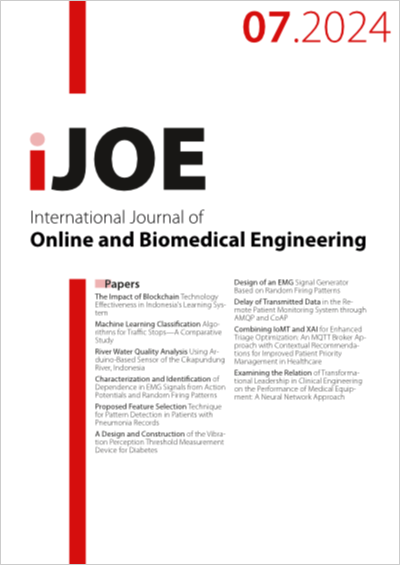The Impact of Blockchain Technology Effectiveness in Indonesia's Learning System
DOI:
https://doi.org/10.3991/ijoe.v20i07.47675Keywords:
blockchain technology, effectiveness, learning system, learning outcomes, database system, quasi-experimentalAbstract
This research investigates the integration of blockchain technology in vocational education in Indonesia, evaluating its impact on database system learning outcomes. Involving 86 Indonesian students, this study aims to assess the effectiveness of blockchain in improving students’ understanding, skills, and academic performance. Using a quasi-experimental design, the findings of this study showed a significant improvement in learning outcomes, as evidenced by the analysis of pre-test and post-test scores. The measure of the effectiveness of the improvement in learning outcomes, with a substantial increase of approximately 46.50%, emphasizes the positive influence of blockchain technology on student achievement in the database systems course. The findings of this study will contribute valuable information to educational institutions, policy makers, and educators who wish to incorporate new technologies such as blockchain into their learning systems. The implication of this research is to provide recommendations in optimizing the integration of blockchain technology, which significantly affects learning outcomes in database systems. This is realized through facilitating fast and efficient access to learning materials, fostering a more interactive and engaging learning environment, and enhancing students’ understanding of industry practices. The integration of blockchain into database systems learning not only improves the quality of learning but also equips students for a successful career in information technology.
Downloads
Published
How to Cite
Issue
Section
License
Copyright (c) 2024 Muhammad Hakiki, Radinal Fadli, Arisman Sabir, Agung Prihatmojo, Yayuk Hidayah, Irwandi

This work is licensed under a Creative Commons Attribution 4.0 International License.



